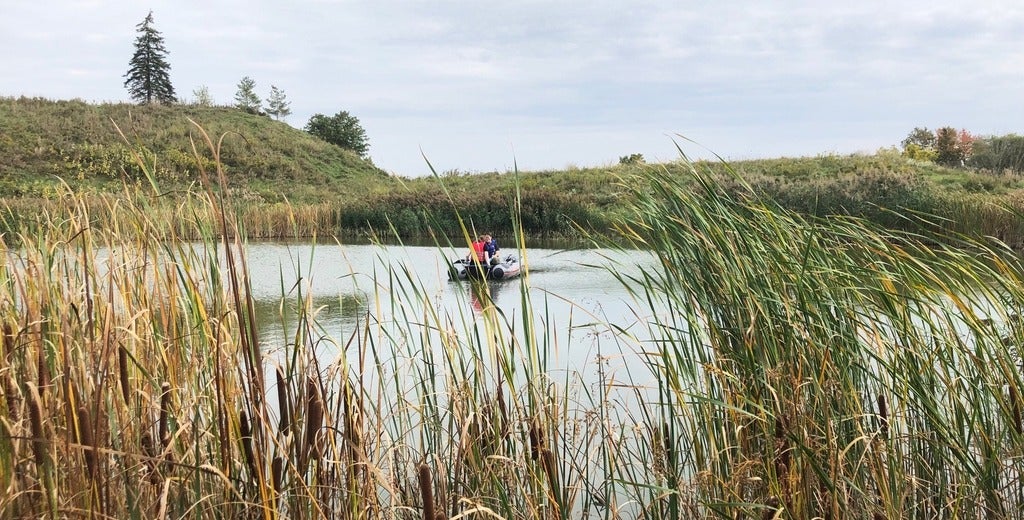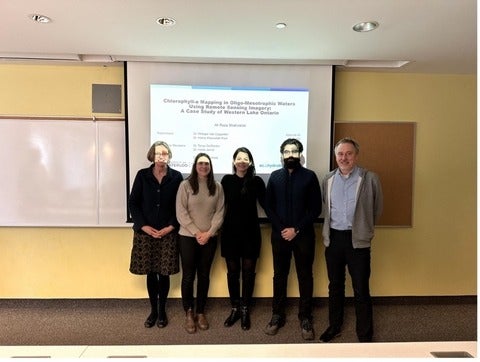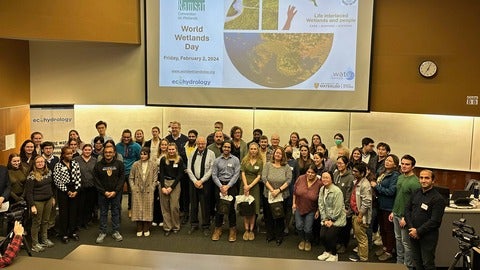Global Water Futures Observatories (GWFO) officially launched
The Global Futures Observatories (GWFO) was launched officially today. The launch event included welcoming remarks from GWFO Director John Pomeroy and Terry Duguid, MP and Parliamentary Secretary to the Prime Minister. Representatives of the four core universities (Saskatchewan, Waterloo, Laurier, McMaster) and the Real-Time Aquatic Ecosystem Observation Network (RAEON) gave overviews of their observatories and associated research facilities. Philippe Van Cappellen presented on behalf of the Waterloo GWFO team.



